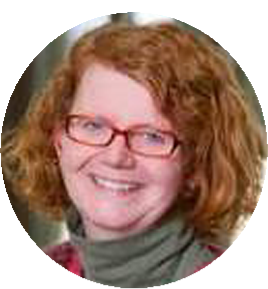Aligning the Work of DARS and Adult Education to Benefit Virginians

by Kate Kaegi
 Throughout the years, the Virginia Adult Learning Resource Center (VALRC) and the Department for Aging and Rehabilitation Services (DARS) have worked together on several partnerships, projects, and grants. Our current partnership “Pathways to Careers” (Pathways) connects Virginians with disabilities to rewarding careers and job training opportunities—all while helping Virginia employers meet their workforce goals. Pathways focuses on registered apprenticeships, state government employment, and the high-growth, high-demand industries that power Virginia’s economy—particularly for individuals from un- and under-served communities. The program is managed by DARS under a federal grant, and VALRC—and adult education programs from across the state—are key partners in its success.
Throughout the years, the Virginia Adult Learning Resource Center (VALRC) and the Department for Aging and Rehabilitation Services (DARS) have worked together on several partnerships, projects, and grants. Our current partnership “Pathways to Careers” (Pathways) connects Virginians with disabilities to rewarding careers and job training opportunities—all while helping Virginia employers meet their workforce goals. Pathways focuses on registered apprenticeships, state government employment, and the high-growth, high-demand industries that power Virginia’s economy—particularly for individuals from un- and under-served communities. The program is managed by DARS under a federal grant, and VALRC—and adult education programs from across the state—are key partners in its success.
As the grant began, Pathways noted that the many candidates were looking at entry-level positions that require some postsecondary training. We needed a way to offer training to participants virtually as many participants were struggling with postsecondary training at the community college level. What we found with VALRC and adult educators were flexible instructors that met our participants with their current skill sets. Instructors have been able to provide trade-related academics, career-specific training (with credentials), support for soft skill development, and assistance with work readiness while also addressing digital literacy.
As this partnership has grown, we’ve been adjusting our process according to our successes and our lessons learned. Each cohort goes through orientation with both Pathways and with the adult education programming. To address trade-related academics, Pathways has purchased CASAS assessments and trained Career Assessment Counselors around the state. Pathways also provides support with loaner computers and assistive technology services.
Our partnership has also assisted each agency with trainings and overviews. VALRC has partnered with Pathways to build capacity at the local level with DARS counselor trainings on Reaching Culturally & Linguistically Diverse Populations. They have also provided assistance with our Pathways Advisory Board and contributed their technical assistance with the development of a Job Club curriculum. In conjunction, Pathways has delivered an Overview of Services and Disability Etiquette training for adult education programs across the state and at several adult education conferences. We also provide free monthly disability etiquette training called Windmills which are offered virtually for employers and agency partners.
Looking at the sustainability of our work after the grant, we are looping our virtual training into our training center—Wilson Workforce and Rehabilitation Center (WWRC). Pathways will become the virtual training option for WWRC and to assist, VALRC is providing WWRC and Pathways with Canvas training for our candidates. Our plan is to continue our partnership by bringing in adult educators to provide content and academic training while WWRC/Pathways provides supportive virtual services (Job Club, communications groups, driving permit classes etc.).
As adult educators, Pathways encourages you to reach out and partner with your local DARS offices. With co-enrollment, we have been able to braid funding, provide quicker response to issues, support learners with computers, provide assistive technology for employment and training, and bring a variety of employment opportunities to the candidates.
You can find your local DARS offices here: https://www.dars.virginia.gov/office.html#gsc.tab=0
 Kate Kaegi is the Virginia Department for Aging and Rehabilitative Services’ (DARS) Program Manager for the Pathways to Careers grant. She brings to this position more than 20 years of experience working with individuals with disabilities to help them with their career choices, training options, and employment. She has been a vocational evaluator working with consumers and businesses with the Division of Rehabilitation Services, Wilson Workforce and Rehabilitation Center, and VA Rehabilitation Center for the Blind and Vision Impaired. Additional experience includes working as a career coach in the community colleges, adjunct instructor with Virginia Commonwealth University, and Sergeant in the U.S. Army Reserves. Kate received her master’s degree in vocational evaluation and rehabilitation counseling from East Carolina University.
Kate Kaegi is the Virginia Department for Aging and Rehabilitative Services’ (DARS) Program Manager for the Pathways to Careers grant. She brings to this position more than 20 years of experience working with individuals with disabilities to help them with their career choices, training options, and employment. She has been a vocational evaluator working with consumers and businesses with the Division of Rehabilitation Services, Wilson Workforce and Rehabilitation Center, and VA Rehabilitation Center for the Blind and Vision Impaired. Additional experience includes working as a career coach in the community colleges, adjunct instructor with Virginia Commonwealth University, and Sergeant in the U.S. Army Reserves. Kate received her master’s degree in vocational evaluation and rehabilitation counseling from East Carolina University.